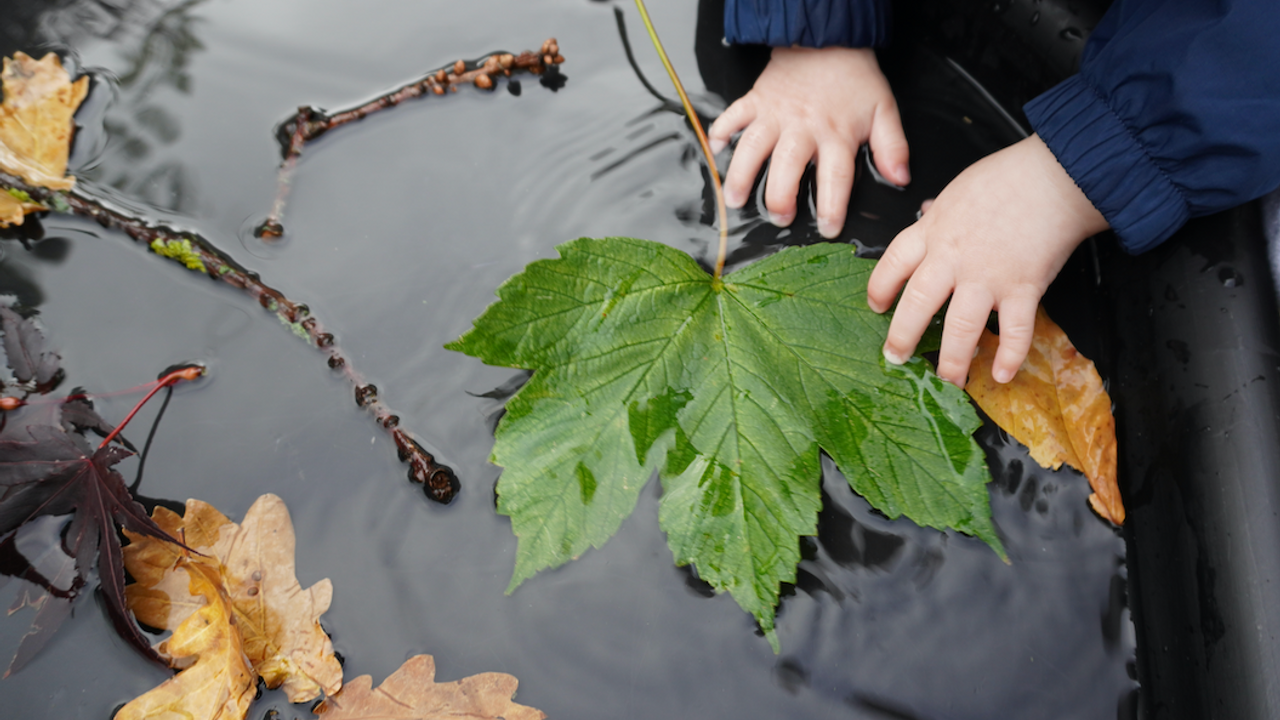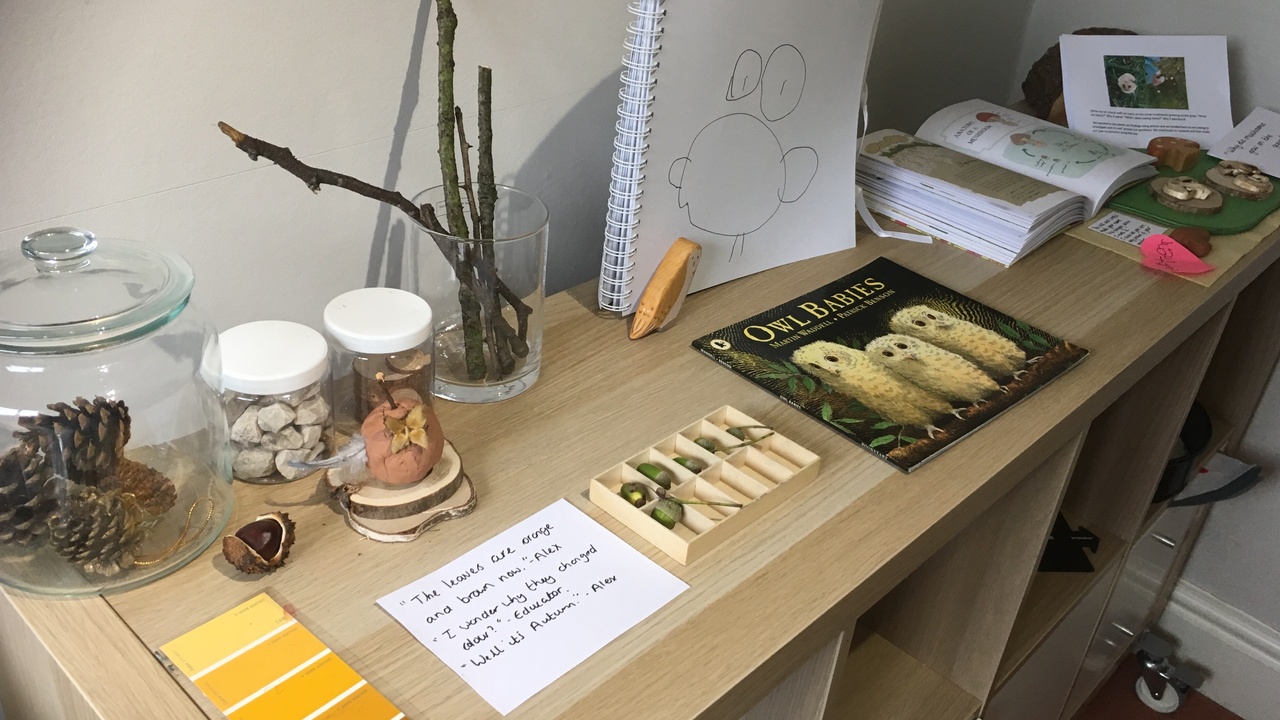Blog
“Strive to make everyday the best day of your life, because there is no good reason not to.” Hal Elrod
How to de-stress this Autumn

The darker nights are here, the days are getting cooler and we're in the middle of a busy term with the children. You may be finding yourself feeling sad that 'summer's over' but I want to show you some simple ways you can feel hygge to de-stress this Autumn.
The Danes are great at slowing down and finding the greatness that each season brings.
1. Plant Tulips
Plant some tulips, daffodils and other spring bulbs in a pot and daydream about the happiness and beauty they are going to bring to you early spring next year. I love flicking through the bulb catalogues each year and taking the time to look for unusual bulb types. Each spring i'm always filled with joy when I see my bulbs open up as i've often forgotten what i've planted and they are a wonderful surprise. Last year my favourites were the Tulipa 'Angélique' and I planted these in a spot by my front door for the whole family and visitors to admire!
Working in the soil will also make you feel happier too as scientists have ...
Autumn Tinker Tray Ideas

What is a tinker tray?
Tinker trays are filled with open ended loose part materials that will spark curiosity, problem solving, critical thinking and imaginative play. The objects in the tray can be used in any way the child chooses and there is no set way that they should be used. It is commonly used in the Reggio Emilia Approach to learning and can be adapted for a range of different ages and stages of development.
Materials for a tinker tray
Any tray with compartments can be used to display and store the loose parts to be used in play. I quite like using trays made out of natural materials like wood and seagrass as i always think we can display our materials in a beautiful way in these. Here are some ideas of what you could use or re-use:
- A cutlery tray insert
- A chocolate box or biscuit box insert
- Bun trays
- Tie box
- Jewellery tray insert
- Desk drawer dividers
- Tool boxes
- Crafting boxes
- Ice cube trays
- A tea bag caddy

Items ideas for your tinker tray:
We can creat...
50 Outdoor Play Activities this Autumn

Autumn is one of the most beautiful times of year.
Here we share 50 play activities for you to get inspiration from. Some wonderful ideas for your left over pumpkins too - not just for Halloween!
You can also find weekly nature planning ideas and invitations to play in my Rewilding Nature Study Programme
A Gentle Reminder Before You Begin 🌿
It can be tempting to look at a long list of activities and feel like you should do them all. But the Hygge approach is about slowing down, not speeding up.
Children don’t need a packed timetable. What they need is:
-
Experiences linked to their current skills (what they are practising right now).
-
Play that reflects their interests (what lights them up and holds their attention).
-
Learning that grows from what we already know about them as individuals.
✨ Instead of rushing through all 50 ideas, choose just a few as seasonal hooks. Perhaps puddle jumping, conkers, or pumpkins. Offer these gently over the season, observe where t...
Simple Autumn Leaf Play

Autumn time has to be one of my favourite times of the year. Having Oliver now makes it even more exciting too as I take a moment to stand back and watch him experience everything.
We have loved getting outside each day and doing a daily walk. Talking about all the things we notice each day and notice any changes. Doing this is very much inspired by the practice of the Danes with the daily walk children in early education do. We stop at our favourite tree as well to document its changes as we move through the year.
I also think it's important that we as adults take the time to just pause and appreciate the slow moments of joy in the day. We can't teach hygge and living well if we don't model it ourselves. I've built this into our daily walk and we will often find a little spot to just sit and watch what's going on.
On our walk yesterday we took great enjoyment in collecting up some of the fallen leaves and twigs. We then brought these back and I popped them in some water in our tu...
Create an Autumn Nature Shelf

Setting up a seasonal space in your setting gives children the opportunity to connect with nature and deepen their understanding. Helping them also to be more present about the world around them and develop a love for nature.
Where to set up the nature shelf?
The nature shelf doesn't need to take up a huge amount of space in your setting. I have seen it be successfully implemented on a small window sill. It could be on a table, inside an up turned crate, a shelf on the wall or an a shelving unit.
I like to position it in an area that flows between inside and out that offers that natural connection with the outdoors. If you have families visiting the setting too with their children consider where would be a nice space for them to pause and talk about what they can see?
What can I put on my nature shelf?
I like to include a range of open ended materials that young children can connect with. I also invite children and their families to contribute to this when they make an excit...
Embracing Hygge at The Flower Cottage this Autumn Season 🍁

Embracing Hygge at The Flower Cottage this Autumn season 🍁
Hygge in the Early Years member Caitlin, from The Flower Cottage Childminding has recently given her setting a wonderful autumn makeover. Giving us all the Autumn feels! We couldn't help but fall in love as it is so inspiring.
We asked Caitlin if she would share with us some of the hygge activities in her setting:
Noticing changes as we transition from Summer to Autumn, observing the colours transitioning, watching the leaves fall and finding hidden treasures outdoors that can be brought into our indoor play 🍂
Melting pumpkin spice wax melts in our burner on a morning and simply enjoying a lovely storybook as a group, cuddled in blankets and cosy jumpers.
Enjoying slow learning in our play spaces filled with twinkle lights, flickering candles and nooks of light from lamps, following the child’s lead but always being there on hand in time of need.
Enabling and encouraging children to reach their next hurdle and pr...
Openwoodgate Preschool - Our Hygge Journey

Hygge in summertime is not that different to hygge in Autumn or wintertime. I was inspired to continue our Hygge journey over the summer holidays even though our setting is term time only.
Here are my top 10 ideas for creating inspiring Hygge activities for your little ones...
1. Sunflower Soup
A super quick and easy water play activity requiring very little set up.
All you need is a large pot full of water (i like to colour my water), bowls, spoons, sunflowers (I tend to use ones that are almost past their best) and any other added extras you like! (Pipets are always fun and good for fine motor development)
2. Ice play
Sticking with the water theme and with the British summer being a bit unpredictable you have to grab these hot days when you can! And what better way to cool off than with an ice play activity?
All you need is a couple of things...
Ice (make sure to freeze the day before if doing a large volume), cutlery, pots and pans! You can add in coloured water, flow...
How To Flourish This Autumn with Hygge in the Early Years

How to flourish this Autumn with Hygge in the Early Years...
As the leaves become crunchy underfoot here are a few simple ways to enjoy Autumn.




For more seasonal ideas see my Re-Wilding your Wanderlust Child Nature Study Programme
Some books to inspire you:







How to create your own rock pool

Create your own rock pool in your setting to explore. This is one of the ideas shared in my Rewilding Wanderlust Nature Study Programme.
You will need;
-
sensory tray (any tray will do)
-
sand
-
pebbles
-
shells
-
sea creatures - paint rocks if you don't have any
You can lay out the items required for the children to create it themselves or do it as a collaborative task.
1. Simply add sand to your tray creating a circular space in the middle to pour your water
2. Add pebbles
3. Add water to the centre where there is no sand. The water will soak into the sand surrounding but this is totally natural.
4. Add shells
5. Add some sea creatures or perhaps children could make some rock painted crabs or fish to add?
We added blue food colouring to the water to give it a more blue ocean colour but you don't have to.
Tag me on socials if you give this a go.
Find out more about my courses on my website.
20 Hygge Nature Crafts for Children

Try these Hygge Nature Crafts for Children. Some wonderful nature-based craft ideas to inspire you.
1. Make a stick nest
Add a pine cone bird - pine cone with feather for a tail and wings
2. Clay or playdough Faces
Use homemade playdough or air dry clay to create creatures and faces on the bark of trees.
3. Bark Rubbings
Create bark rubbings or leaf rubbings then use them in your other craft activities - perhaps on your nature bracelet or wand?
4. Flower Pressing
Flower pressing has long been a wonderful nature craft activity. If you don't have a press just use heavy book lined with paper to press your flowers. These can then be used in crafts later in the year - perhaps on a Cosy Hygge Jar with fairy lights inside?
Or, create an air dry clay trinket bowl with your pressed flowers stuck on with a layer of pva on top to protect them.
Or, add them to candles to decorate them.
5. Leaf and Stick Butterflies/dragonflies
A cute nature craft using nature.

























